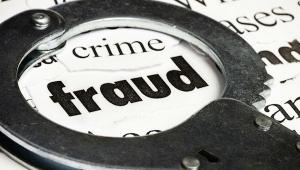By Richard Johnstone | 16 May 2012
The Audit Commission is calling for government departments to be required to join its National Fraud Initiative, which has saved £1bn elsewhere in the public sector since it began in 1996.
 The initiative uses a data matching system across 1,300 organisations to detect fraud, overpayments and errors in public spending. This can highlight, for example, illegal Housing Benefit claims in one local authority by someone working in another.
The initiative uses a data matching system across 1,300 organisations to detect fraud, overpayments and errors in public spending. This can highlight, for example, illegal Housing Benefit claims in one local authority by someone working in another.Information comes from all the bodies that the commission audits – councils, NHS trusts and police authorities – plus public audit bodies in Scotland, Wales and Northern Ireland.
However, the only Whitehall department taking part in the scheme is the Department for Communities and Local Government, and the only government agency to have fully signed up is the Highways Agency.
Commission chair Michael O’Higgins has written to Sir Bob Kerslake, permanent secretary at the DCLG and civil service head, asking him to get departments to join the programme.
O’Higgins said: ‘Despite its strong focus on tackling fraud, central government is still not sharing in the obvious benefits of the NFI.
‘Every public body audited by the commission is required to take part, but government bodies can choose whether or not to do so. And so far most have chosen not to. I have written to Sir Bob Kerslake suggesting that he makes it a requirement for Whitehall and its arm’s-length organisations to take part in the NFI.’
O’Higgins told Public Finance that the letter was sent at the end of March, and although there have been ‘positive indications’ that departments may join up, no agreements have yet been reached to do so.
‘We require all those that we audit to give us the data. What we don’t have is that from central government.
‘We are not saying that there’s more [fraud] in central government, but where we do look in local government and health, we find things.’
In its latest biennial report, the commission reveals that the scheme has identified £275.3m of fraud in the UK since May 2010. This is made up of £228.7m in England, and £46.6m in Scotland, Wales and Northern Ireland.
Since it was launched 16 years ago, the system has helped to identify £939m worth of fraud that has either been claimed back or stopped.
The highest cost identified in England, over the last two years, is pension fraud at £98m. Abuse of the council tax single person discount is second highest at £50m, and Housing Benefit third at £31m.
Potential cases of fraud are highlighted by the commission, and then investigated by the individual bodies. Overall, 731 people have been prosecuted in the last two years, the majority – 636 – for Housing Benefit fraud.
Social landlords have been able to recover 235 properties that were unlawfully occupied, reallocating them to genuine tenants. The initiative has also worked with the Serious Organised Crime Agency to identify ‘virtual addresses’ used as a front for unlawful activity.
O’Higgins added that the scheme had been discovering more fraud year-on-year, but he was uncertain ‘whether finding more means there’s more fraud or whether we are finding more of it’.
But he added that the £1.3m cost of the scheme, which the government has already pledged to continue after the commission has been abolished, was providing ‘a very good return’.






















